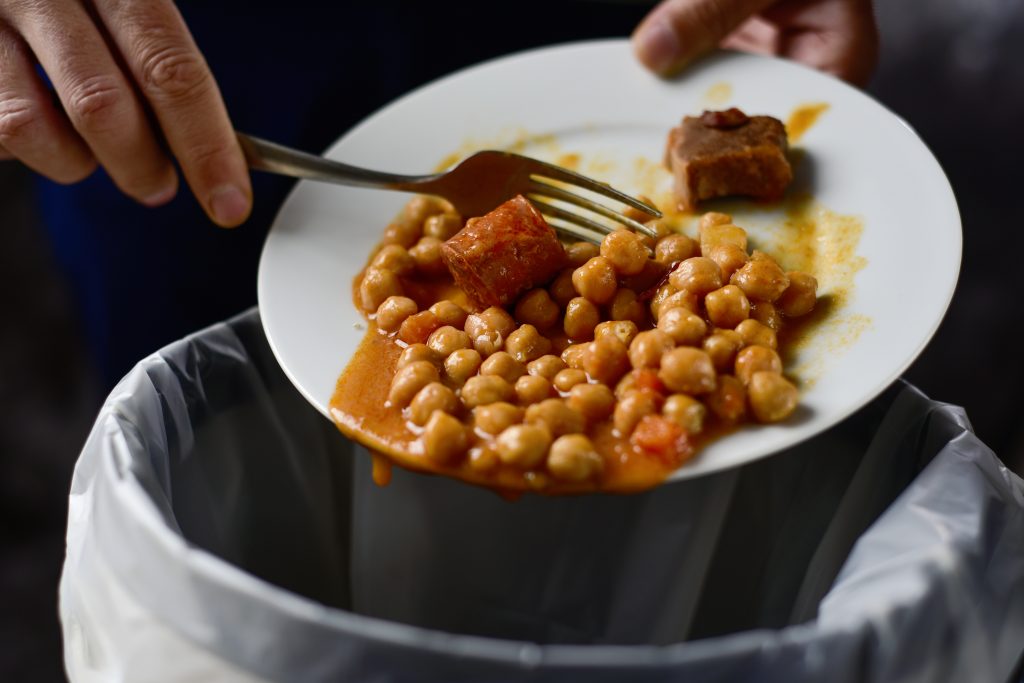I do not think twice when I dump half a plate of food in the garbage or consider how much food I waste over the course of a week, and you probably don’t either.
Food waste is a serious issue in the United States that is causing a cascade effect on the environment, contributing to climate change and rising temperatures. According to the U.S. Department of Agriculture (USDA), 30 to 40 percent of food served in the United States is wasted every year. Some of this food waste occurs at the consumer level, which includes us college students. Fortunately, Binghamton University and Sodexo have implemented sustainability efforts to reduce waste, but students should still try to be more conscious of the food they are throwing away when thinking about the long-term impact our actions have on the environment.
It’s quite shocking to hear that a head of lettuce can take up to 25 years to decompose in a landfill. Unfortunately, mountains of rotting food do not decompose like they would in a compost bin or on their own. This organic material in landfills also creates landfill gas, which is about half carbon dioxide, half methane and a small percentage of nonmethane organic compounds. The high concentrations of methane released from these landfills have detrimental effects on the environment. According to the World Wildlife Fund, about 11 percent of greenhouse gas emissions caused by the food system come from wasted food. Methane is a greenhouse gas that works extremely well at trapping heat in the atmosphere, thus contributing to rising global temperatures. Methane is at least 84 times more potent than carbon dioxide when in the atmosphere for two decades, which is why efforts should be made to reduce its concentration in the atmosphere now rather than later when it could pose a much greater threat. While food waste may not be the first thing that comes to mind when we think of causes of climate change, it is clear that it is a significant contributor to the problem and is something we could easily work to reduce by changing our daily habits.
According to the USDA, 31 percent of food waste occurs at the consumer and retail level. Food at the consumer level is wasted when we throw away unfinished food, such as what is left on our plate after meals or leftovers from restaurants. Waste also accumulates from buying in bulk and letting excess food go bad or throwing away food that has passed the sell-by date posted on the package. The U.S. Environmental Protection Agency recommends avoiding buying in bulk to avoid having to throw away food when it becomes inedible and to cook with produce that may be past ideal freshness. People should also be wary of “sell-by” and “use-by” dates posted on food, which can often be misleading. For most foods, these dates indicate maximum quality and taste, and are not indicators of the food being unsafe. It is important to be mindful of how food is wasted in our daily lives and find ways to reduce this waste.
Both BU and Sodexo have been working toward reducing waste and operating sustainable campus dining services. Some initiatives already in place include composting leftover food, which works to reduce food waste in landfills and recycling fryer oil to be used as biofuel. Food scraps are composted at a local farm, and the composted material is returned to the University and distributed throughout campus grounds. Our campus also purchases food from local vendors. These efforts help to reduce the University’s negative impact on the environment and provide a model for other institutions to do the same.
While the University has implemented methods to reduce waste, some may argue there is always more that can be done. Perhaps some additional changes can be made such as including a compost bin in trash rooms in each dormitory. Many residents make their own food in their rooms or take dining hall food back to the dorms, thus continuing to contribute to the food waste issue by throwing food away in the garbage. Compost bins are a simple solution to continue to move toward sustainability. This, paired with each individual’s efforts to reduce food waste in their personal lives, are feasible ways that we reduce our contribution to climate change.
Sophia LoBiondo is a sophomore majoring in political science.



